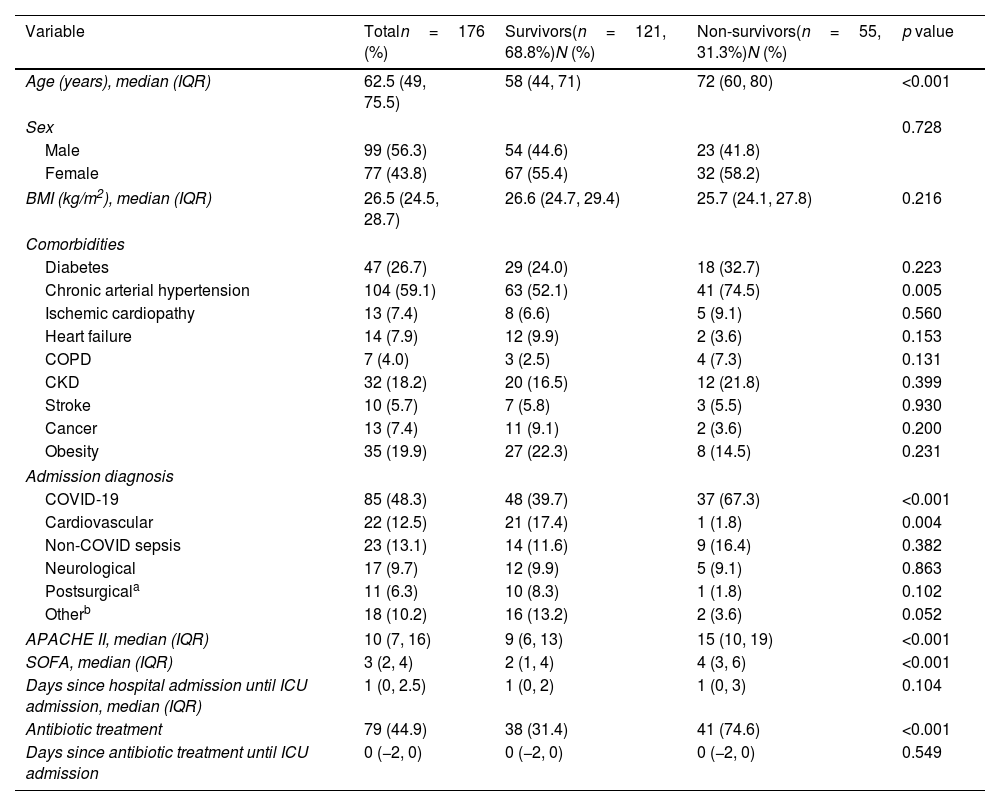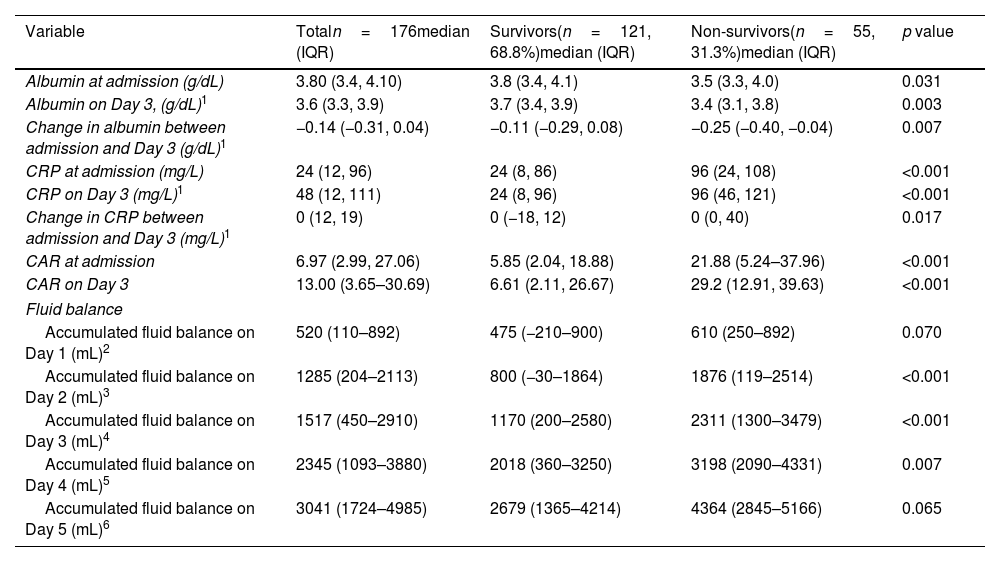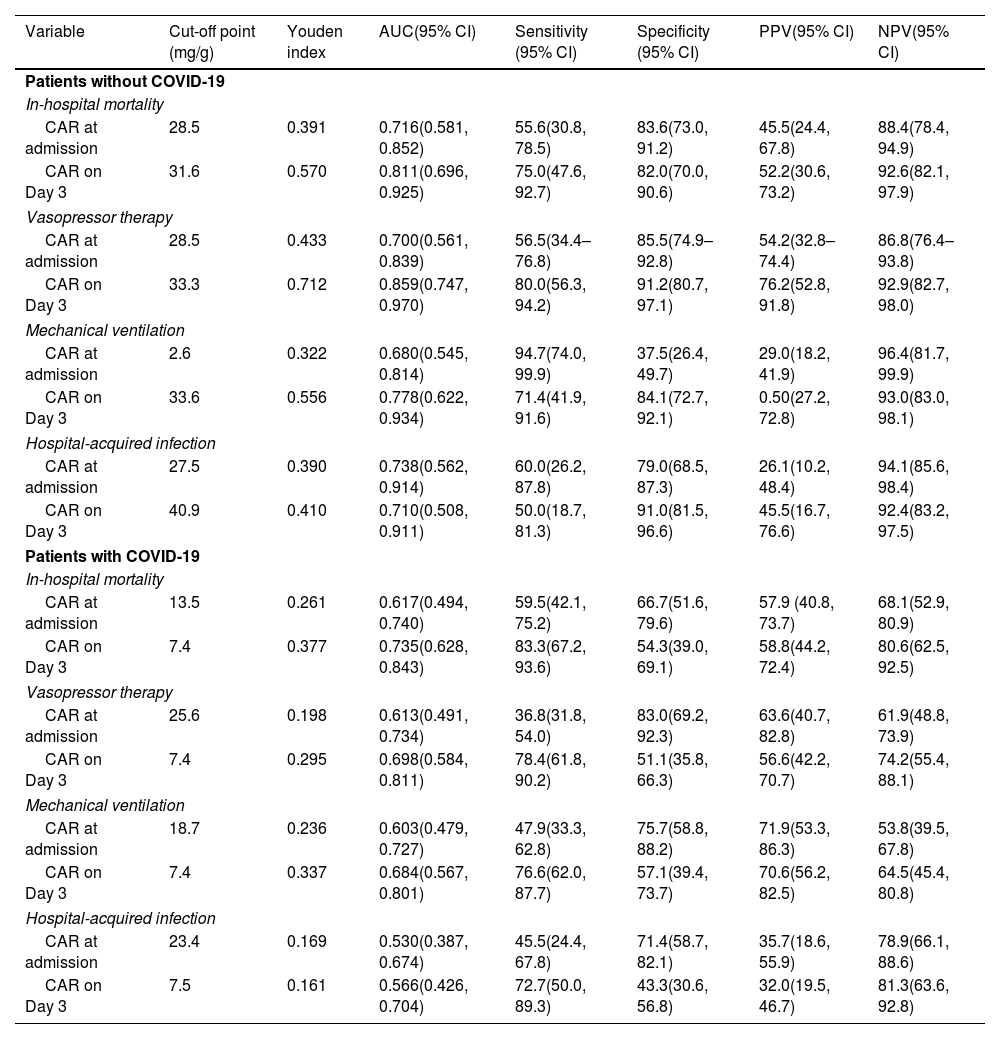Compare the performance of the C-reactive protein to albumin ratio (CAR) in predicting in-hospital death between patients with and without COVID-19.
Materials and methodsThis prospective cohort study included critically ill patients with and without COVID-19. CAR was obtained at admission and on Day 3, along with fluid balance and other predictive scores. The primary outcome was all-cause in-hospital death, and the Youden index was used to determine CAR cut-off points.
ResultsWe included the data of 176 patients; 85 had COVID-19. All-cause in-hospital death was 31.3%. The CAR cut-off points for patients without COVID-19 were 28.5mg/g and 31.6mg/g at admission and on Day 3, respectively, and 13.5mg/g and 7.4mg/g for COVID-19 patients. Day 3 CAR was a better predictor of all-cause in-hospital death than CAR at admission in both groups. Non-survivors in the COVID and non-COVID groups had higher positive fluid balance rates than survivors.
ConclusionsThe CAR predicted in-hospital death in both groups, with different cut-off points. CAR on Day 3 had better diagnostic performance than that at admission. Cumulative fluid balance may influence CAR kinetics. An optimal CAR cut-off point for critically ill patients, optimal measuring time, and impact of fluids therapy still need to be established.
Comparar el rendimiento del índice proteína C reactiva-albúmina (CAR) en predicción de mortalidad hospitalaria entre pacientes con y sin COVID-19.
Materiales y métodosEstudio de cohorte prospectivo, que incluyó pacientes críticamente enfermos con y sin COVID-19. CAR fue obtenido al ingreso y el día 3, además del balance hídrico y otras escalas predictoras. El desenlace primario fue un compuesto de mortalidad hospitalaria por todas las causas, y se utilizó el índice de Youden para determinar los puntos de corte de CAR.
ResultadosSe incluyeron 176 pacientes, 85 con COVID-19. La mortalidad hospitalaria fue del 31,3%. El punto de corte de CAR para pacientes con COVID-19 fue de 28,5 y 31,6mg/g a la admisión y el día 3, respectivamente, y para pacientes sin COVID-19 fue de 13,5 y 7,4mg/g. En ambos grupos, el CAR el día 3 fue mejor predictor de mortalidad hospitalaria que el tomado a la admisión. Los no-sobrevivientes en los grupos de COVID y no-COVID tuvieron mayores niveles de balance de hídricos comparados con los sobrevivientes.
ConclusionesEl CAR predijo la mortalidad hospitalaria en ambos grupos, con puntos de corte diferentes. CAR el día 3 tuvo mejor rendimiento pronóstico que el tomado a la admisión. El balance hídrico acumulado pudo haber influido en la cinética del CAR. Aún se necesita establecer un punto de corte óptimo del CAR en pacientes críticamente enfermos, el tiempo de medición óptimo y el impacto de la terapia hídrica.
Article
Socios de la Asociación de Medicina Crítica y Cuidado Intensivo
Para acceder a la revista
Es necesario que lo haga desde la zona privada de la web de la AMCI, clique aquí














